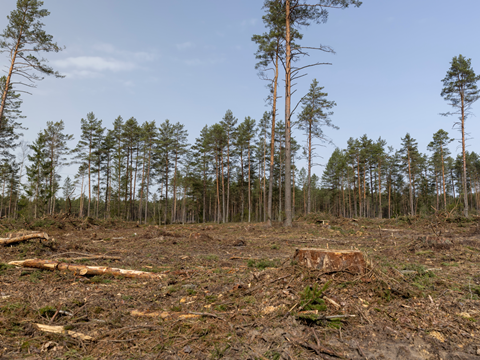
The European Commission intends to simplify the EU Deforestation Regulation and lessen administrative burden and costs by 30% as it publishes new guidance documents before the law enters into application later this year.
Updates to the Regulation’s Frequently Asked Questions and guidance are anticipated to give companies, Member State authorities, and partner countries more clarity as they prove their products are deforestation-free. Both are designed to address feedback from businesses, industry, Member States, and partner countries, and to harmonize the Regulation’s implementation across the EU.
In response to industry concerns, the simplification measures hope to reduce the number of due diligence statements a company is required to file and make data entry easier and more efficient for all users.
Large companies are now permitted to reuse existing due diligence statements when re-importing goods that were previously on the EU market, reducing the amount of information they are required to submit to the corresponding IT system.
Similarly, companies can now submit due diligence statements annually, rather than for every batch or shipment placed on the EU market; and an authorised representative can submit a due diligence statement on behalf of members of company groups.
The Commission has also clarified the definition of ‘ascertaining’ that due diligence has been carried out. At minimum, large companies downstream are expected to collect reference numbers of due diligence statements from their suppliers and use them for their own due diligence statement submissions, an adjustment expected to simplify the process overall.
These measures will be backed by a publicly available Delegated Act, in which the scope of the Regulation is said to be simplified and clarified. Guidance for specific product categories is provided in hopes of helping economic operators and authorities avoid unnecessary administrative costs.
A country benchmarking system is also being finalized through an Implementing Act; this will reportedly be adopted ‘no later than 30 June 2025’ after the Commission has held discussions with Member States.
In total, these measures are anticipated to cut a company’s administrative burden and costs by an estimated 30%. They are believed to fulfil the Commission’s commitment to the European Parliament and Council ‘while guaranteeing regulatory certainty within the boundaries of the Regulation’.
With the Regulation already believed to have made ‘positive’ progress in the prevention of deforestation, climate change, and biodiversity loss, the revisions are hoped to facilitate ‘simple, fair and cost-effective’ implementation for all industry players.
The Commission states its intention to keep responding to stakeholder, Member State, and partner country feedback and provide further guidance wherever it is necessary. It claims to have strengthened dialogue and supported preparation via dedicated meetings and online trainings, aligning with its Strategic Framework for Cooperation and Engagement.
Over 50 webinars, 15,500 places for online training, and various online videos in multiple languages have been provided to guide stakeholders through the use of the relevant Information System. A training system is also available for familiarization.
The Team Europe Initiative on Deforestation-Free Value Chains has also raised a reported €86 million to support partner countries in their transitions into more sustainable, deforestation-free, and legal value chains.
“We are committed to implementing EU rules on deforestation in a spirit of close partnership, transparency, and open dialogue,” said Jessika Roswall, commissioner for Environment, Water Resilience and a Competitive Circular Economy. “Our aim is to reduce administrative burden for companies while preserving the goals of the regulation.
“We will continue to work very closely with all stakeholders, to ensure that our rules deliver on reducing global deforestation and forest degradation in the least burdensome way for companies.”
Industry efforts have also sought to lessen the impact of deforestation. WWF previously partnered with SIG to restore 25 hectares in Malaysia’s Ulu Muda Forest Complex and improve the management of over 170,000 existing hectares; the partners have since launched a project to protect forest landscapes in Thailand in line with SIG’s goal to create, restore, protect, or improve the management of 650,000 hectares of forest by 2030.
Conversely, Hagens Berman has filed a class-action lawsuit against Procter & Gamble. The company has allegedly used misleading environmental claims on its Charmin toilet paper product to ‘mask’ its ‘widespread deforestation practices’ in Canadian boreal forests.
In other news, the European Commission unveiled its Competitive Compass earlier this year. This strategic framework combines the pursuits of competitiveness and climate neutrality through measures to bolster the innovation, manufacture, and sale of technologies, services, and clean products on an EU Single Market.
If you liked this story, you might also enjoy:
The ultimate guide to the Packaging and Packaging Waste Regulation in 2025
How are the top brands progressing on packaging sustainability?
Everything you need to know about global packaging sustainability regulation in 2025
The key to increasing the use of reusable packaging in supermarkets














No comments yet